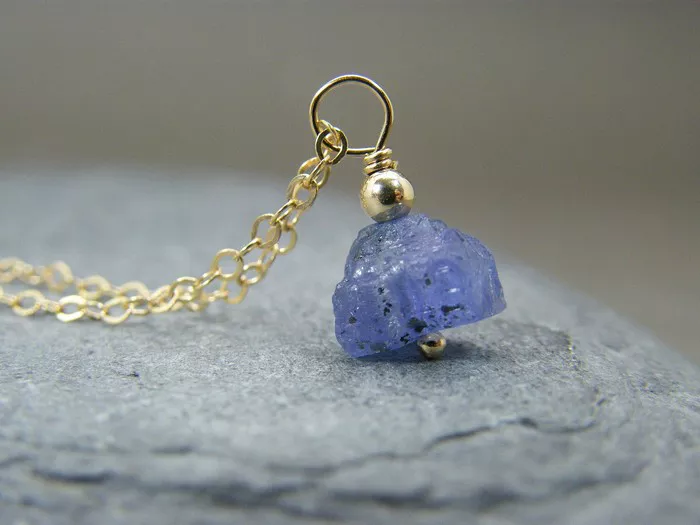A diamond necklace is a luxurious and timeless piece of jewelry that exudes elegance and sophistication. Whether worn as a statement piece for special occasions or as a daily accessory, diamond necklaces come in various styles and designs, each showcasing unique characteristics that contribute to their beauty and allure. This article delves into the essential characteristics of a diamond necklace, discusses factors such as diamond quality, necklace styles, settings, and craftsmanship, and provides insights into choosing the perfect diamond necklace to suit different preferences and occasions.
Understanding Diamond Necklaces
Diamond necklaces feature diamonds as the central or accentuating element, set in various designs to adorn the neck. These necklaces can range from delicate and understated to bold and elaborate, catering to diverse tastes and occasions. Key characteristics that define a diamond necklace include:
Diamond Quality: Similar to other diamond jewelry, the quality of diamonds in a necklace is determined by the 4Cs—cut, color, clarity, and carat weight. These factors collectively influence the brilliance, sparkle, and overall appearance of the diamonds.
Necklace Style: Diamond necklaces come in different styles such as solitaire pendants, diamond tennis necklaces, chokers, multi-strand necklaces, and statement necklaces. Each style offers a distinct look and can be tailored to complement various outfits and settings.
Setting and Metal Type: The setting refers to how diamonds are secured within the necklace, such as prong, bezel, pave, or channel settings. Metal types commonly used include white gold, yellow gold, rose gold, and platinum, each affecting the necklace’s overall aesthetic and durability.
Characteristics of a High-Quality Diamond Necklace
When evaluating the characteristics of a diamond necklace, consider the following aspects to ensure quality and craftsmanship:
Diamond Cut: The cut of diamonds in a necklace significantly impacts their brilliance and light performance. Well-cut diamonds reflect light effectively, enhancing their sparkle and beauty. Look for diamonds with excellent or ideal cut grades for optimal brilliance.
Diamond Color: Diamond color grades range from D (colorless) to Z (light yellow or brown). Colorless diamonds (D-F) are highly valued for their rarity and ability to reflect light, creating a bright and vibrant appearance in a necklace setting.
Diamond Clarity: Clarity refers to the presence of internal and external imperfections (inclusions and blemishes) within the diamond. Higher clarity grades (e.g., FL to VS) indicate diamonds with minimal imperfections, ensuring clarity and enhancing overall brilliance.
Carat Weight: Carat weight measures the size of diamonds in the necklace. Larger carat weights result in bigger diamonds that can make a bold statement, while smaller carat weights offer a more delicate and understated look.
See Also: How Can I Sell My Necklace?
Types of Diamond Necklace Styles
Diamond necklaces are available in a variety of styles, each offering unique characteristics suited for different occasions and personal preferences:
Solitaire Pendant: A classic style featuring a single diamond suspended from a chain, emphasizing the beauty and simplicity of the diamond.
Diamond Tennis Necklace: A continuous strand of diamonds set in a line, typically worn close to the neck, known for its dazzling and elegant appearance.
Choker: A short necklace that sits snugly around the neck, often adorned with diamonds in various settings to create a sophisticated and stylish look.
Multi-Strand Necklace: Features multiple strands of diamonds or mixed with other gemstones, offering a layered and luxurious appearance suitable for formal events.
Statement Necklace: Elaborate designs featuring large diamonds or intricate patterns, designed to make a bold statement and stand out as a centerpiece of attire.
Choosing the Right Diamond Necklace
When selecting a diamond necklace, consider the following factors to ensure it aligns with your style preferences and occasion:
Occasion: Determine whether the necklace is intended for everyday wear, special occasions, or formal events. Choose a style and design that complements the occasion’s dress code and setting.
Personal Style: Reflect on your personal style preferences, whether you prefer classic and understated designs or bold and eye-catching statements. Choose a necklace that resonates with your individual taste and enhances your overall appearance.
Budget: Set a budget based on your financial considerations and priorities. Allocate funds for diamond quality, necklace style, setting type, and metal choice while ensuring the overall value and craftsmanship meet your expectations.
Necklace Length: Consider the length of the necklace that best suits your neckline and comfort level. Necklaces come in various lengths, from chokers to opera length, each offering a different look and feel when worn.
Care and Maintenance of Diamond Necklaces
To preserve the beauty and longevity of your diamond necklace, follow these care tips:
Cleaning: Clean your diamond necklace regularly using a soft brush and mild detergent or a jewelry cleaning solution. Avoid harsh chemicals that can damage the metal or diamonds.
Storage: Store your diamond necklace in a jewelry box or pouch to prevent it from scratching or tangling with other jewelry pieces. Keep it away from direct sunlight and extreme temperatures.
Professional Inspection: Periodically have your diamond necklace inspected by a professional jeweler to check for loose settings, wear and tear, or any potential damage that may require repair.
Conclusion
A diamond necklace is a symbol of luxury, elegance, and timeless beauty that enhances any outfit and occasion. Understanding the characteristics of a diamond necklace, including diamond quality, necklace styles, settings, and craftsmanship, empowers you to make an informed decision when selecting the perfect necklace. Whether you prefer a classic solitaire pendant, a dazzling diamond tennis necklace, or a statement-making multi-strand design, the key is to prioritize quality, craftsmanship, and personal style preferences. By choosing a diamond necklace that resonates with your individual taste and meets your expectations for beauty and durability, you can enjoy its brilliance and sophistication for years to come.

